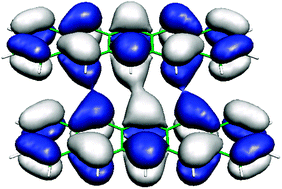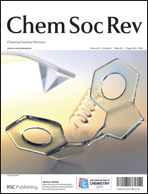The theories developed since the fifties to describe charge transport in molecular crystals proved to be inadequate for the most promising classes of high mobility molecular semiconductors identified in the recent years, including for example pentacene and rubrene. After reviewing at an elementary level the classical theories, which still provide the language for the understanding of charge transport in these systems, this tutorial review outlines the recent experimental and computational evidence that prompted the development of new theories of charge transport in molecular crystals. A critical discussion will illustrate how very rarely it is possible to assume a charge hopping mechanism for high mobility organic crystals at any temperature. Recent models based on the effect of non-local electron–phonon coupling, dynamic disorder, coexistence of localized and delocalized states are reviewed. Additionally, a few more recent avenues of theoretical investigation, including the study of defect states, are discussed.

You have access to this article
 Please wait while we load your content...
Something went wrong. Try again?
Please wait while we load your content...
Something went wrong. Try again?


 Please wait while we load your content...
Please wait while we load your content...